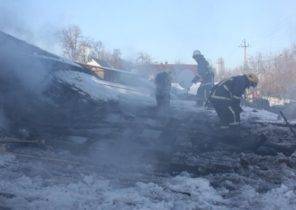I lived in the house of a Turkish friend Serdar for about a month. His Anne (mom), which has repeatedly won local culinary contests taught me a 200 recipes home-cooked meals. “The more complex the preparation, the better it turns out!” was all she said. These words I remember to this day.
Anne married at the age of 15. She knows all 200 recipes
So, our first day began for me a personal cooking class, which was characterized by a great diversity. Every day we spent in the kitchen. I was taking pictures, notes, was constantly next to Anne and got acquainted with the recipes.
Home cooking is not always prepared according to the recipe, and it’s not just Turkey. If you have the right products, they can be used, if not, then prepare from there. I was introduced to nearly 200 recipes. Anne married at the age of 15 and since then, decades of cooked food. She fed the whole family, kept the kitchen clean, in General, was a model housewife.
We started with Breakfast. In Turkey, an omelet prepared as follows: fry the vegetables in butter, add eggs with cheese turns out thick and rich dish. It is very tasty! The Breakfast also cannot do without cheese, olives, tomatoes, cucumbers and peppers shishito. For dessert, serve the jam from pears and grapes, which are cooked in something like molasses.
Turkey produces wheat, so the bread (ekmek) is also prepared at home. Turkish baguette Frangula, which make natural yeast, crispy on the outside and soft on the inside.
Pour tea constantly until then, until you say, “I can’t”. If you put the spoon on the tea Cup, that means you’re drunk. During the tea party, not during Breakfast always includes dried fruit, nuts, Turkish delight and other treats.
The table is always overloaded with food. Furthermore, since Muslims do not drink alcohol, a sweet tooth.
More of a bother than cooking, the tastier!
Turkish cuisine is among the three best in the world. This is due to the court cuisine in the Ottoman period. Turkish sultans were the gluttons. Say they hired about a thousand cooks. The Ottoman Empire in the East was controlled by Afghanistan and India to the West — Italy and other Mediterranean countries, South — North Africa and Yemen on the Arabian Peninsula, to the North from the Balkan Peninsula to Austria, Hungary and Ukraine.
Thus, it has at its disposal products and recipes of many countries. After the collapse of the Empire and the collapse of the Palace cooks returned to their homeland, and so began to emerge of the Turkish kitchen.
First served soups. Then comes the appetizer (meze). There’s cold meze and hot meze. Main dishes are mainly prepared with meat, fish is served rare. Then there are the salads and pilafs. For dessert, drinking tea with fruit and sweets. The process repeats courtly kitchen, so cooking is very labor intensive.
Anne was always prepared painstakingly and thoroughly. I told her: “Teach me something easy,” to which she replied, “more of a bother Than cooking, the better. This takes time, and there’s nothing you can do.” For example, the chorba soup is prepared as follows: boil the ingredients that make mashed potatoes, make sauce, add spices. That is a recipe consists of several stages.
Nevertheless, Lunches or dinners are mostly served when guests come. Usually eat soup or meze and a main dish or just rice. It all depends on the ingenuity of individual families. The same as we Japanese can eat only rice with soup of Tezuka.
Before you learn how to cook from Anne, I practiced in the restaurant at hashima, so I was able to experience the subtle nuances. For example, Manty, which we did together with the Serdar, house prepared unusually small, but in the restaurant they mold the size of a ravioli.
Indeed, if in the restaurant to make them small it will take a lot of time and effort. So, apparently, in catering manti mold larger. They are similar, but differ in the small details, and I realized through living in Turkey.
In addition, I saw the preparation of traditional sweets such as halva, which is even called the ancestor of the cookies and baklava and Turkish pudding ashure.
In late summer, the products harvested in the year ahead. I also helped to cook the preserves. In previous articles I talked about Russia. There is a widespread culture to procure food for the harsh winter, but in the case of Turkey, the rich variety of products, seasonal foods eaten during this season, and when it comes to an end, the remnants of the can and enjoy them for some time.
These differences also made a big impression on me.
There is a reason why the inhabitants of the mainland parts of a good rumor?
During my stay in Turkey Serdar had to act as interpreter, but due to the fact that he was not at home, almost every day he was absent.
Anne only spoke the Turkish language. In addition to her and nobody in the house was no more. Nothing to do, I took out a dictionary and asked her: “Mom, today the guests will come again?”
“If you have a problem, I can call them I will not,” she replied, and that was sort of our daily communication using the dictionary.
She taught me to cook, and was a lot of food, so they had to call the hotel. In addition, I think many came to see me, because I’ve seen the Japanese infrequently.
People who grew up on the mainland, very good hearing. Them enough once to hear the word to play it. For example, I said “maidans” (parsley in Turkish), and I understood: “Ah, passeri (parsley in Japanese)”, and they could repeat that word (pasari) the first time. I said, “ninniku” (garlic in Japanese), and they immediately memorized it. I envy them.
Around the world, I sometimes met people who are multilingual. I told them that the ability to speak different languages is great, what they objected to. “If I hadn’t taught other languages, I couldn’t live a normal life”, they replied.
When you are on the mainland, you know — before there was constantly war and to do it better than you, you had to understand what the opponent, otherwise you lose. Perhaps that is why the ear accepts foreign languages. That means that the mainland life.
It shocked me, and made me think. I feel that the people of Japan and other island countries hearing worse. Complex sensations.
Recipe of halva for four servings:
1. In a frying pan, melt 150 grams of butter, add 200 grams of wheat flour and fry on low heat until then, until the flour become brownish color;
2. In a pan pour a glass of milk, add 150 — 200 grams of sugar, put on fire and dissolve the sugar;
3. Add “2” to “1” and heat over low heat for five minutes. Cover with a lid, remove the pan from the heat and leave for ten minutes. To shift the contents to a storage container, smooth the surface, cut into pieces and decorate with toasted pistachios.
Read also the first part







